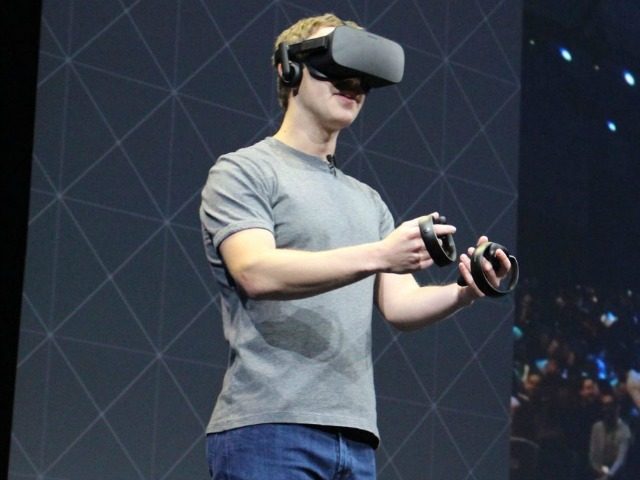Legendary programmer John Carmack, co-founder of id Software of Doom fame and consulting CTO to Facebook’s Oculus VR, said it would be a “positive thing” to build a virtual reality world “where people want to go back into their headset.” Carmack ominously compared VR to the rise of the internet, saying: “I do think it’s going to be kind the way the web slowly took over, where you’re the frog in the pot of water that’s slowly heating up.”
Carmack described virtual reality as a superior experiential alternative to reality in an interview with Lex Fridman on the latter’s eponymous podcast published last Thursday.
Carmack rejected characterizations of a possible future with virtual reality’s growing ubiquity as “dystopian.” He said “the whole point of VR” is to create a superior digital alternative to corporeal reality.
There was a time when we were kind of asked to come up with [a response to the question]: ‘What’s your view on VR?’, and my pitch was that it should be better inside the headset than outside. It’s the world as you want it, and everybody thought that was dystopian. Like, ‘Oh, you’re just going to forget about the world outside?’.
I don’t get that mindset. … If you can make the world better inside the headset than outside, you’ve just improved the person’s life that has a headset [and] can wear it.
There are plenty of things that we just can’t do for everyone in the real world. Everybody can’t have Richard Branson’s private island, but everyone can have a private VR island, and it can have the things that they want on it. There are a lot of these kinds of rivalrous goods in the real world that VR can just be better at [providing]. We can do a lot of things like that that can be very, very rich.
So yeah, I think it’s going to be a positive thing, this world where people want to go back into their headset, where it can be better than [reality]. Somebody that’s living in a tiny apartment can have a palatial state in virtual reality. They can have all their friends from all over the world come over and visit them without everybody getting on a plane and meeting in some place and dealing with all the other logistics hassles.
Carmack projected the growth of virtual reality to resemble that of the rise of the internet, using the metaphor of slowly boiling a frog to illustrate what he predicted would be increasing prevalence of virtual reality in an expanding range of spheres. VR’s future universality, he forecasted, would come to be via incremental progression as opposed to a singular inflection point:
I do think it’s going to be kind the way the web slowly took over, where you’re the frog in the pot of water that’s slowly heating up. Having lived through [the rise of the Internet], I remember when it was shocking to start seeing seeing the first website address on a billboard, when you’re like, ‘Hey, my computer world is infecting the real world. This is spreading out in some way.’
Still, when you look back and say, ‘Well, what made, the web take off?’ It wasn’t a big bang sort of moment. It was a bunch of little things that turned out to be not even the things that are relevant now.
It’s not because one thing is going exponential. It’s because we have hundreds of little sigmoid curves overlap on top of each other, and they just happen to keep adding up so that you’ve got something kind of going exponential at any given point, but no single one of them was the critical thing. There were dozens and dozens of things.
Carmack made several references to the 1992 science fiction novel Snow Crash — from which Facebook drew inspiration for its new company name, Meta — in which a future world’s Internet evolves into a virtual reality-based metaverse.
Facebook purchased Oculus VR in 2014. Carmack noted that the company spent $10 billion in one year on developing virtual reality and its metaverse, with projections of more annual spending going forward.


COMMENTS
Please let us know if you're having issues with commenting.